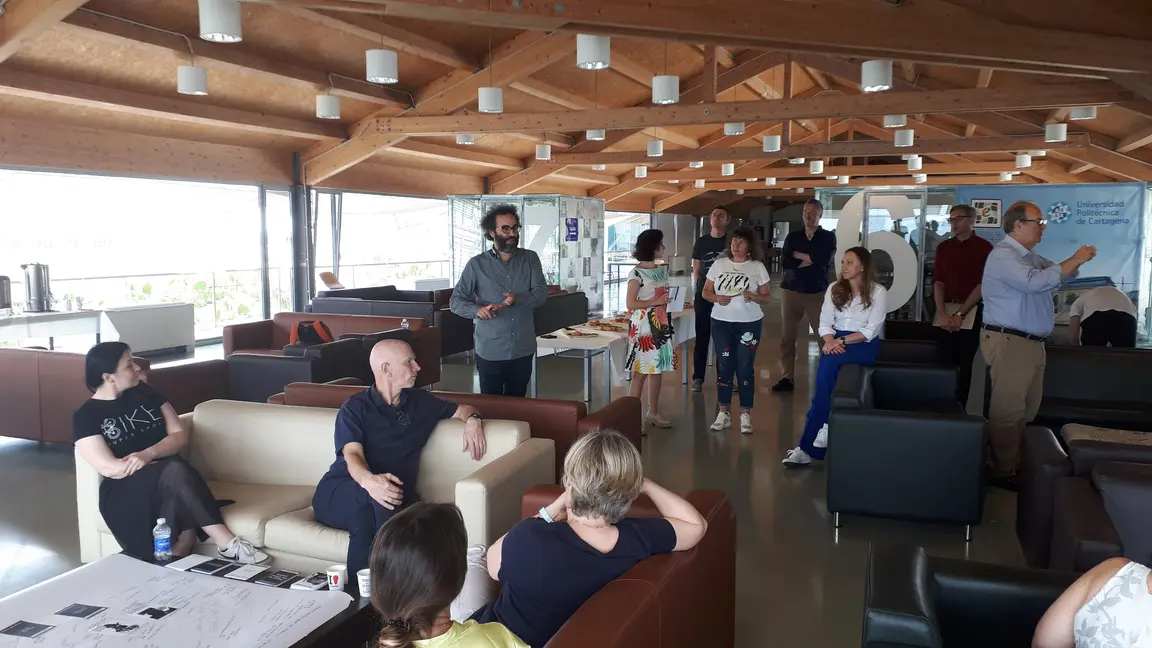
ISP1: Teacher Programme
Intensive Study Programme One: the teacher programme
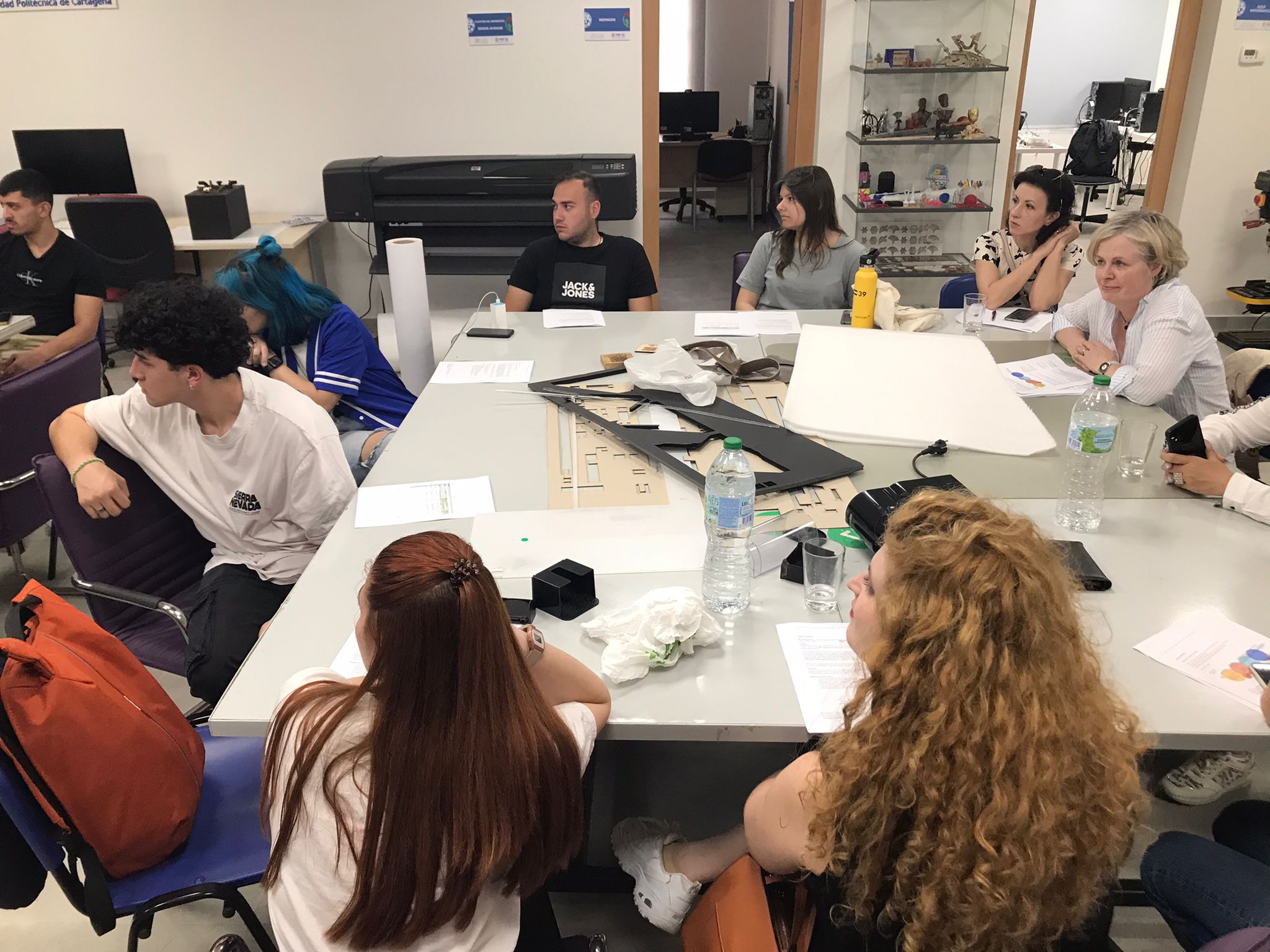
The first Intensive Study Programme (ISP1)of the project was developed by PR3 with PR2 and input from all partners. Hosted by Universidad Politécnica de Cartagena (UPCT) it took place May 3-5 in Cartagena. The ISP was a key component in the preparation and real-world testing of the Teacher Module, with its goal of teaching an aesthetics of care framework to a heterogeneous group of participants within a technological education context.
The primary function of the Teacher Programme was to bring the twin approaches of theoretical work in PR1 and the practice focus of PR2 into a programme that can be taught in a technological education context. The ISP was developed to test key approaches including the games based methodology, with three carefully selected educational games for change which would be systematically evaluated, and the Repair and Re-use Hackathons. The programme also incorporated artistic and design research with the Aesthico-Estetica En Ecologia exhibition,which disseminated the research to a wider public and stakeholders through participation in the artistic programme of Mucho Más Mayo festival in Cartegena and with a public panel discussion on the objectives, progress, and outcomes of the Aesthico project.
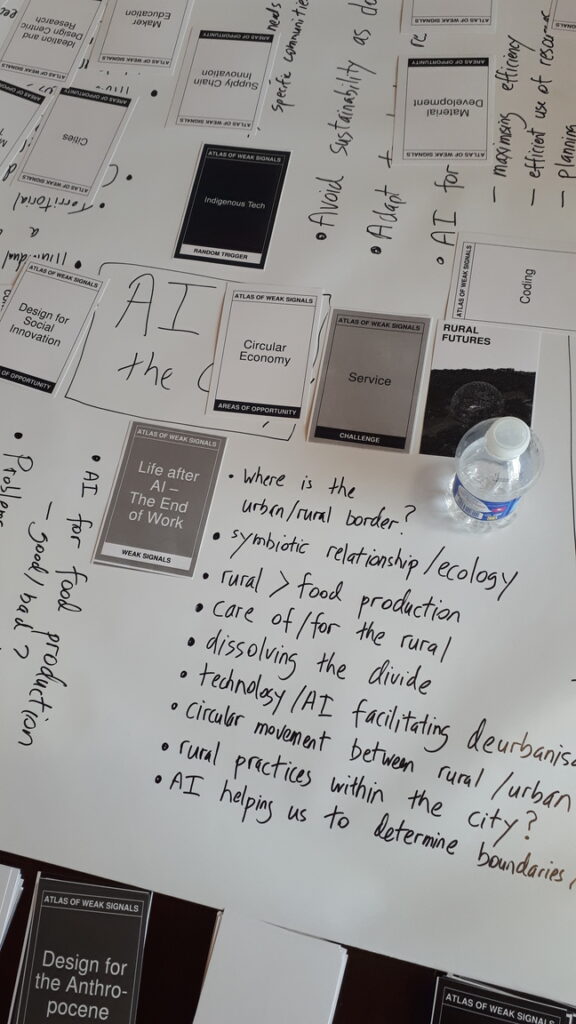
The programme included:
- Repair Hackathon hosted by FaABLAB Sedicupct Cartegena
- Exhibition Aesthico-Estetica En Ecologia as part of Mejor Con Menos the artistic programme of Mucho Más Mayo Festival Cartagena
- Public panel discussion on Aesthetics of Care and the work of the Aesthico project as part of of the Mejor Con Menos artistic programme
- interactive game workshops including the games Atlas of Weak Signals, In the Loop, and Revolt
- Presentation from external stakeholders from University for Development Studies Navrongo Campus Ghana
- Feedback session, SWOT analysis and reflection
Repair Hackathon
A key PR3 task was the implementation of the repair hackathon, designed in collaboration with PR2, as part of the teacher Programme. The Hackathon was incorporated into the Teacher Programme intensive study programme, which took place in Cartegena in May 2023, and was hosted by FaABLAB Sedicupct Cartegena.
Introducing a wider approach to what we conceive as material. The workshop explored materials, taking the basic principles of material design into a new spectrum. Participants were introduced to a range of materials, investigating characteristics, combinations, limitations and applications whilst applying their findings into experimental outcomes through making. The objective was to investigate the role of aesthetics and care in the design of artefacts, through the process of repair through a practical ’hands-on’ methodology.
Participants brought items to repair which were repaired or transformed into new artefacts. Participants were students from Cartegena and CUT , Fab lab staff and staff from the partners. Yoana Pavlova (TUS) leader of PR2 observed the process speaking with participants during and after the event, with her report informing future work of PR2 and PR 3 & 4 and contribute to the development of the hackathon as a method in the final toolkit for teaching an aesthetics of care.
Educational Games Workshops
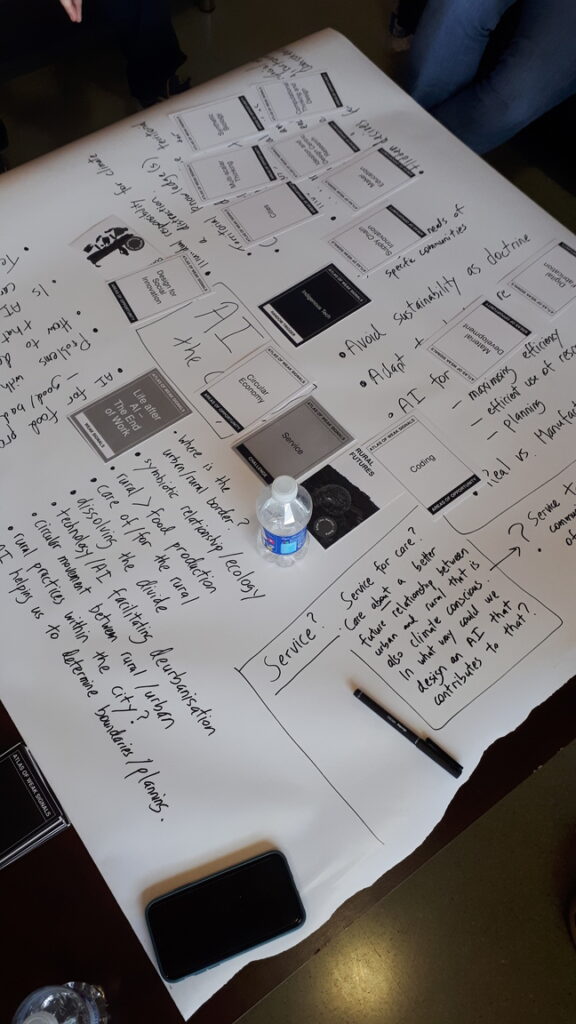
The core of the teacher’s programme was the three interactive ‘serious’ games workshops using three educational games; Atlas of Weak Signals, In the Loop, and Revolt.
The games were chosen by the PR3 team after an extended process of research into game-based educational experience. The objective was to test these games in a real world scenario to assess the suitability, of these games or similar ones, to introduce students to concepts of the circular economy and aesthetics of care in ways that were appropriate across disciplinary backgrounds.The aim of the chosen games was to foster teamwork, critical thinking, and exploration of various outcomes related to participants’ choice and/or expertise. The games served as educational tools that prompt questioning of decisions, actions, and attitudes concerning ecological ethics, sustainability, design practices, and aesthetics of care.
Each game was played by 21 participants over a period of 90 minutes in three groups. Players were given a series of questions and discussion points, devised for the first draft of the teacher programme, to guide their discussion and reflection.
In the development of the programme for the ISP reflection and assessment was a critical factor and went through many iterations before being finalised. This process of assessment and reflection was introduced before the game by Uģis Bratuškins (RTU) who drew attention to the importance of the feedback and assessment process to the development of the teacher module and as input into PR4. Before playing participants completed a short online survey on their expectation for the exercise and their level of experience using pedagogical games in their teaching. After the game all participants completed additional surveys reflecting on their experience with each game.
The process is discussed in greater detail in the publication, Aesthetics of Care and Sustainability in Technological Education: implementing a games based methodology (2024) Perez et al.
Aesthico-Estetica En Ecologia Exhibition
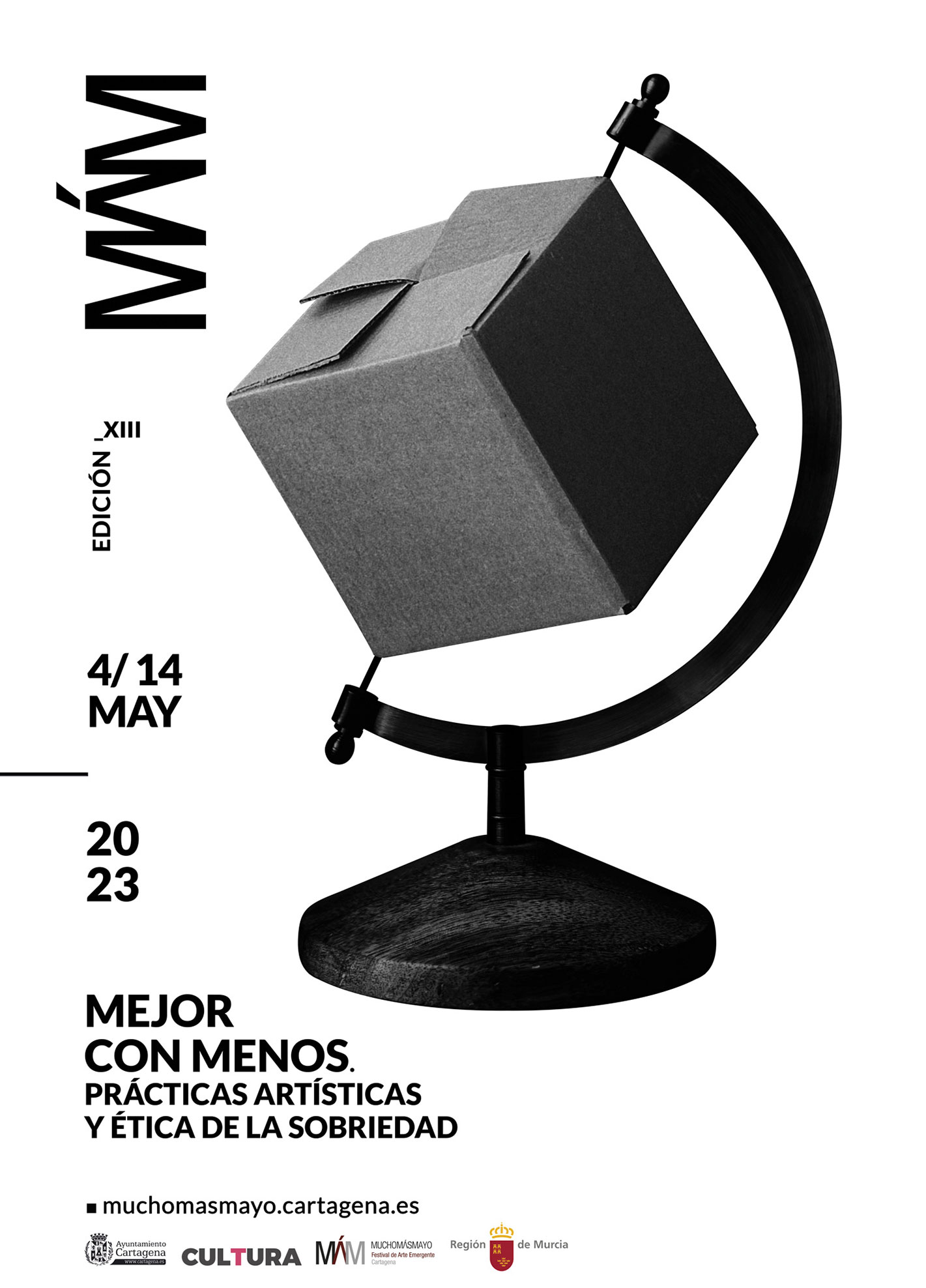
This exhibition examines the nature of the aesthetic relationship between technology, artificial intelligence (AI) and care in the natural world. The work explored the impact of artificial intelligence on the world through its carbon footprint, how AI sees the world and the limits of this vision, culturally and technically, while acknowledging the pharmacological nature of all technology (that it is both poison and cure).
The exhibition highlighted the role of artistic research in the aesthetics of care. Participating artists were Katie Nolan, Marinos Koutsomichalis and Alexia Achilleos, and Conor McGarrigle. The exhibition ran from 4-14 May as part of Mejor Con Menos the artistic programme of Mucho Más Mayo Cartagena arts festival, a cultural highlight for the city of Cartegena and the Murcia region.
The exhibition opening offered the public an opportunity to meet the artists and discuss the ideas behind the work and the exhibition concept.
Aesthico-Estetica En Ecologia Opening
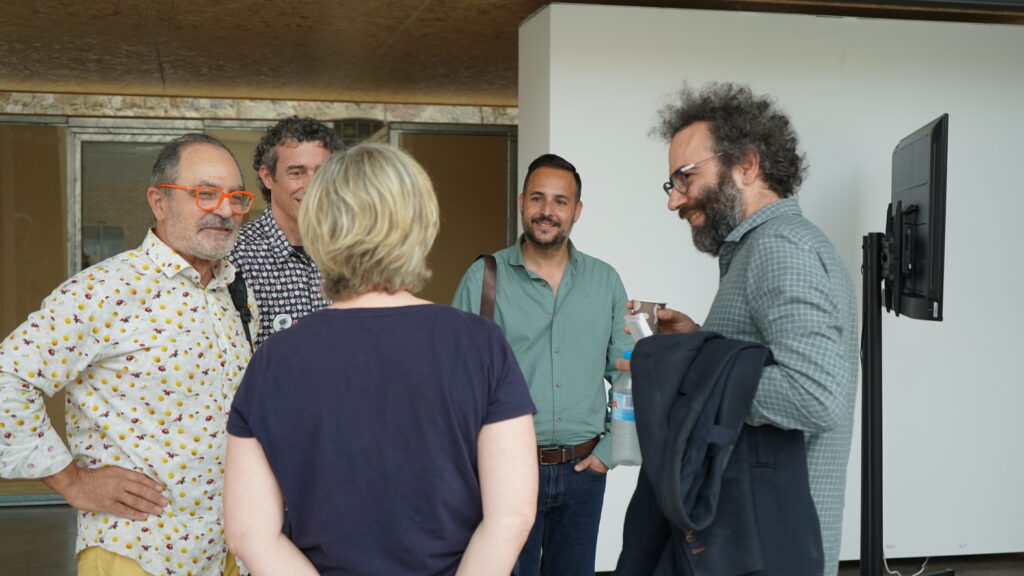
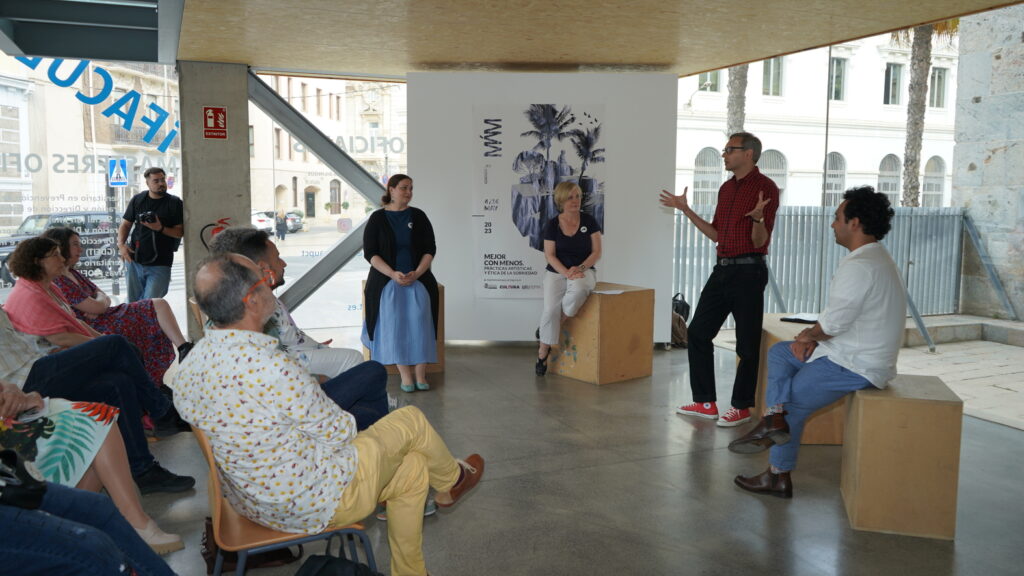
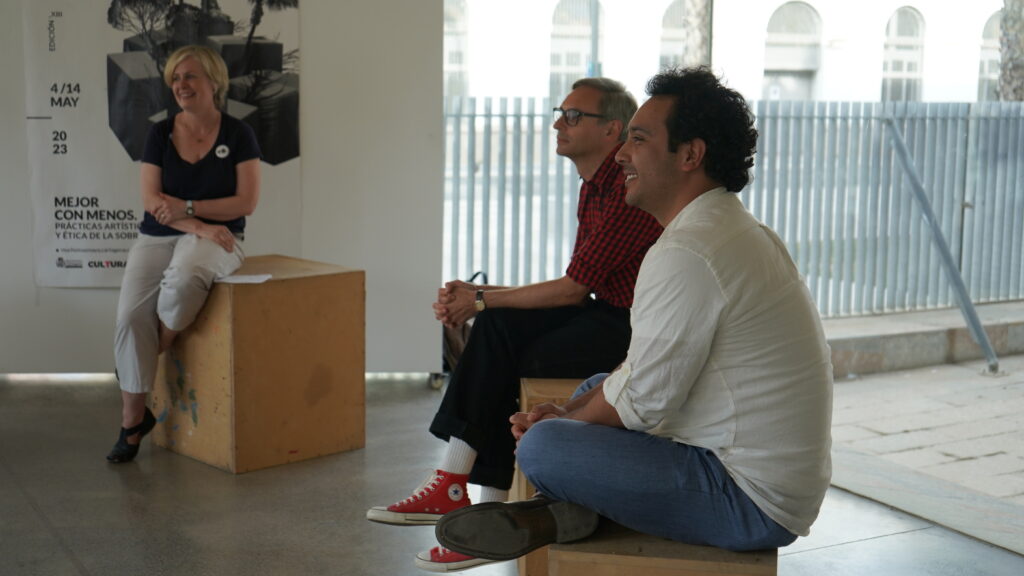
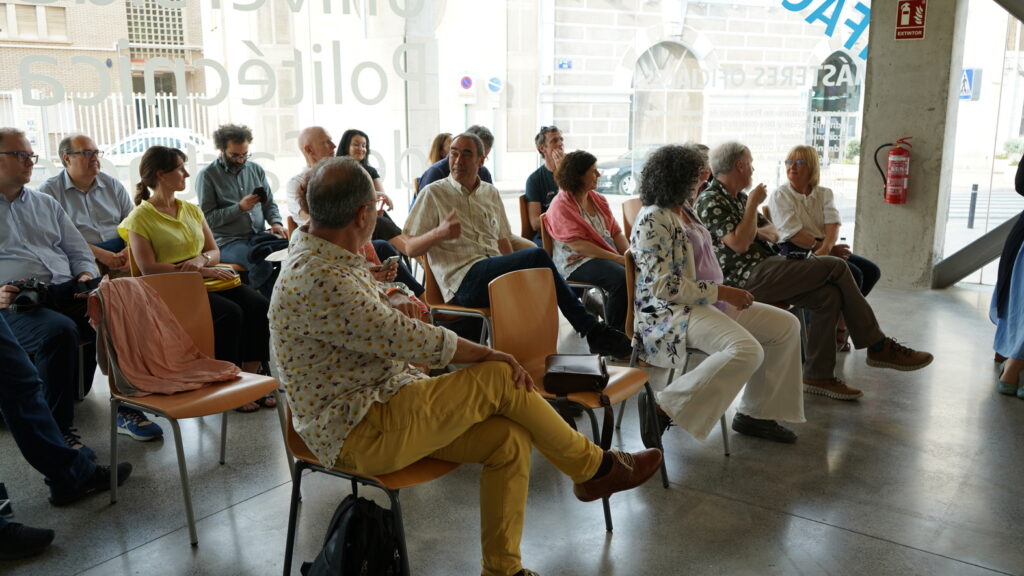
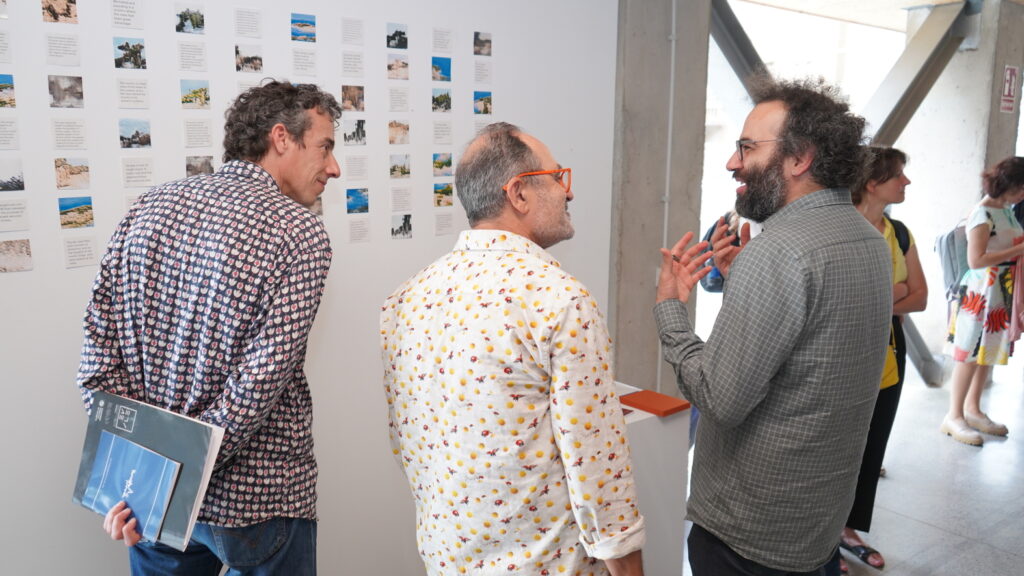
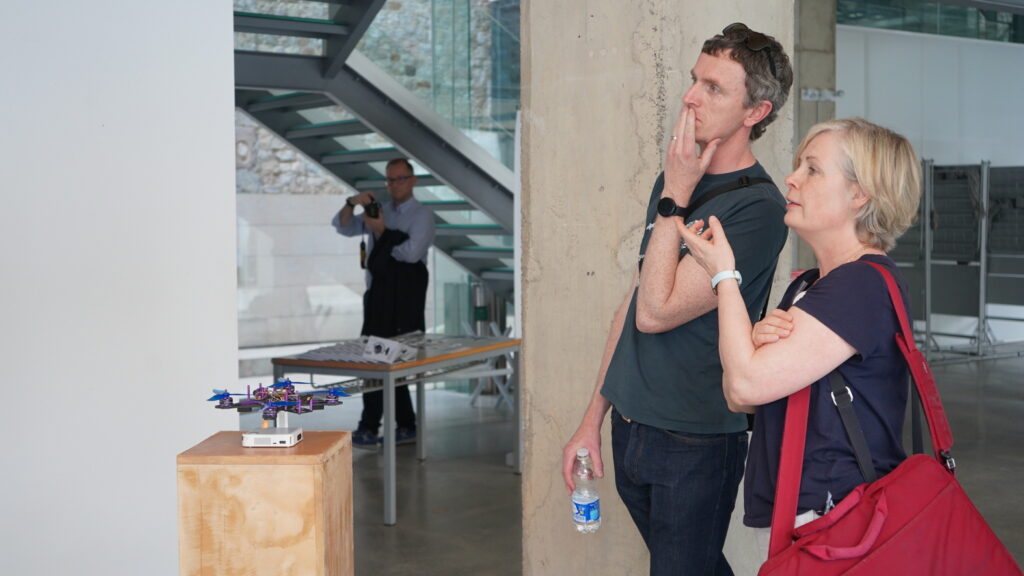
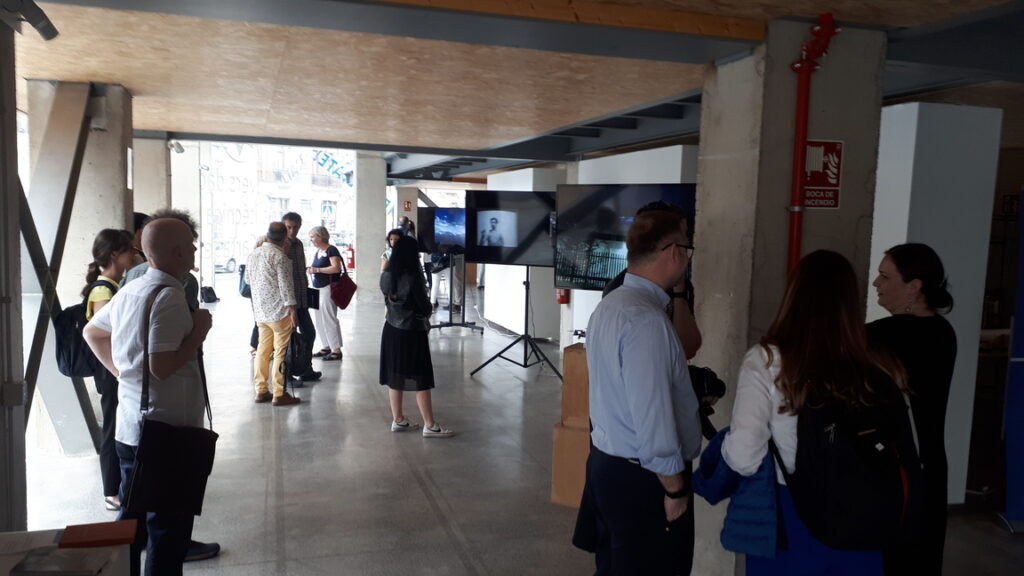
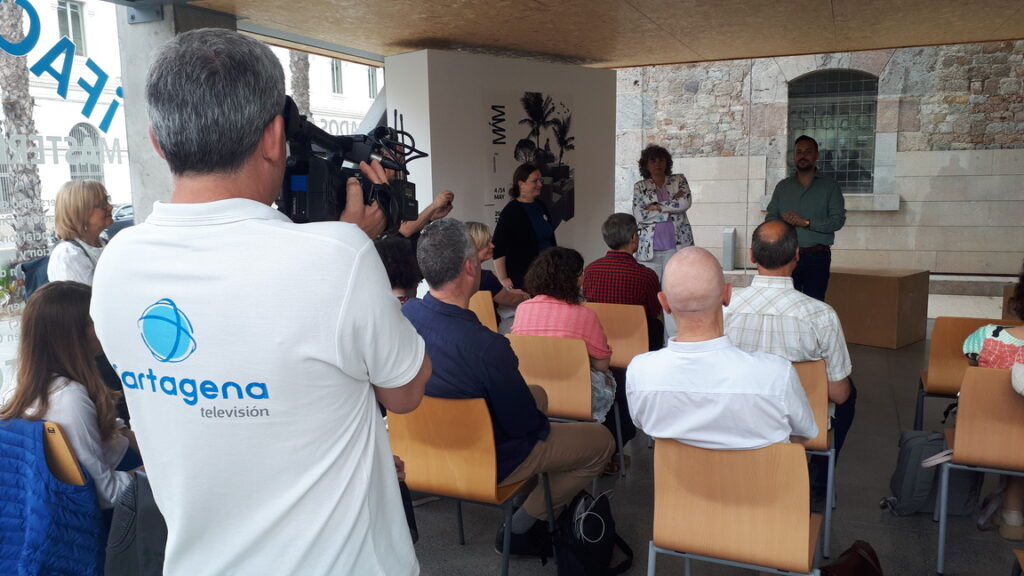
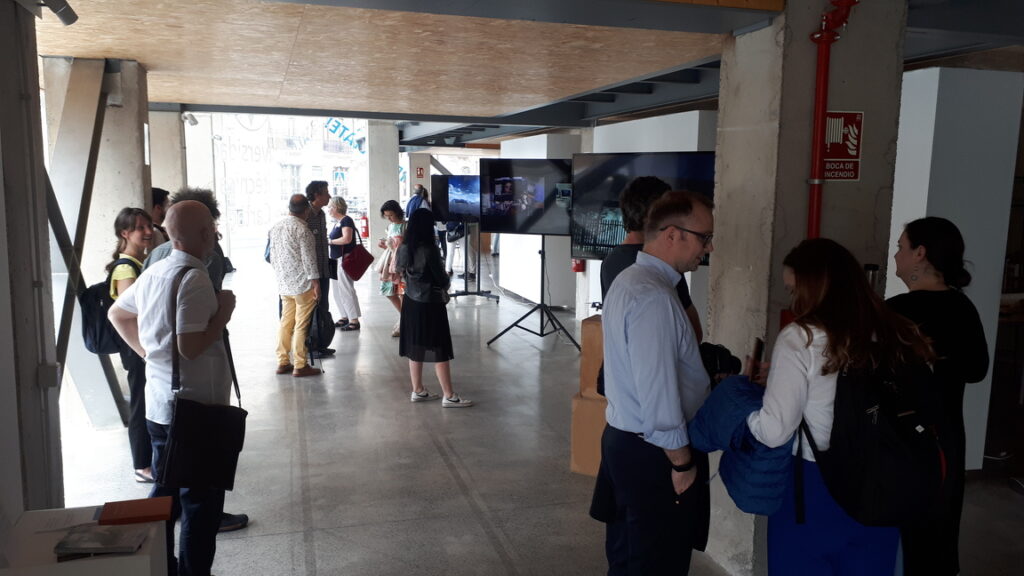
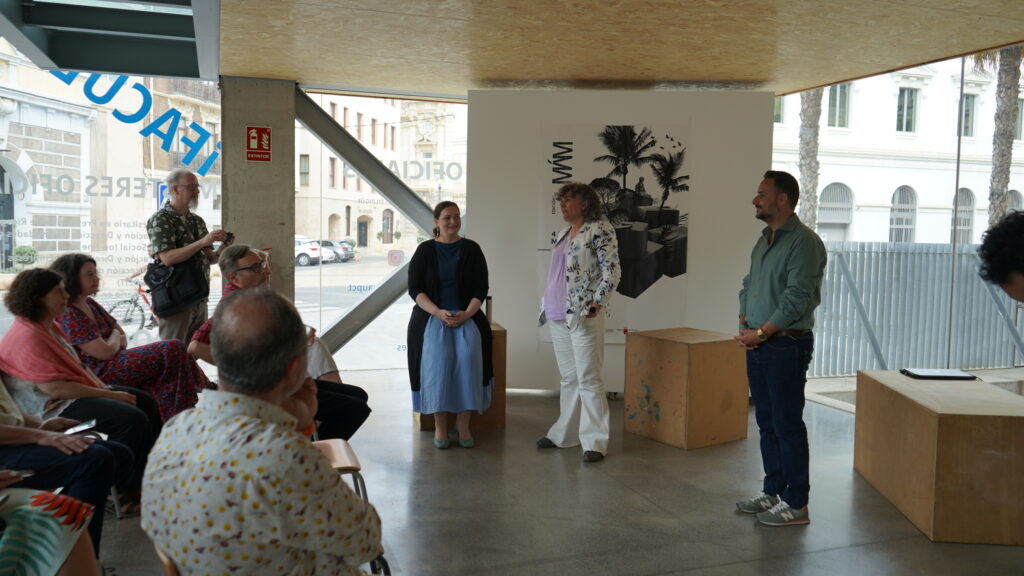
Aesthico-Estetica En Ecologia Panel Discussion

In advance of the exhibition opening a panel discussion on Aesthehics of Care which introduced the work of the project and the work of PR1 in developing the Aesthetics of Care definition and PR3’s teacher programme and its relation to the artistic research presented in the exhibition. The panel consisted of Antonio Fornet (UPCT), Ioana Moldovan (UTCN), Santiago Perez(UTT), and Brenda Duggan (TUD).
The audience and panel was welcomed by Rector of UPCT Sra. Dª. Beatriz Miguel Hernández and the director of Cartegena Culture, David Martínez Noguera, concejal de Cultura Cartegena, and Patricio Hernández, coordinador de la concejalía de Cultura
The panel discussion was followed by an opening reception.
